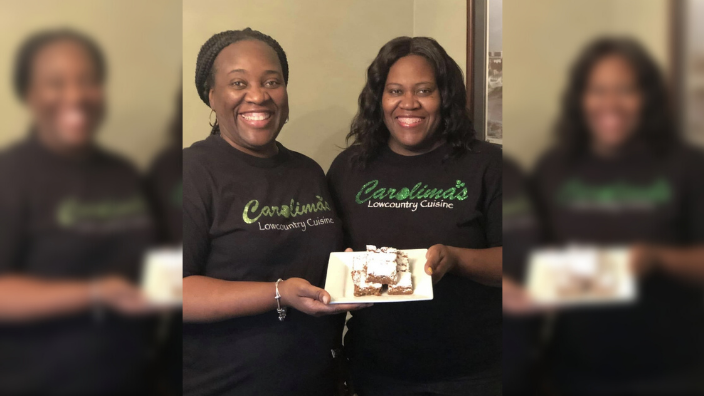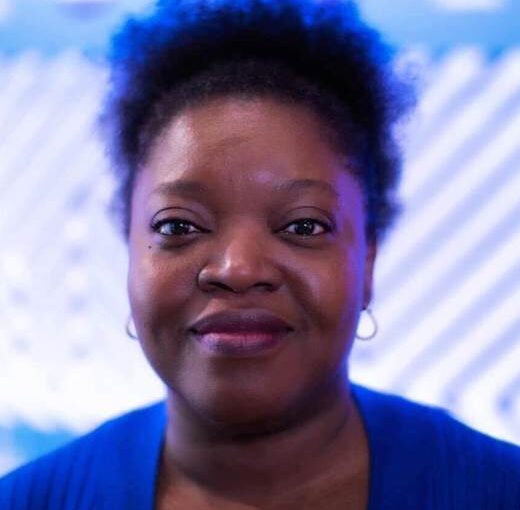How these business owners are centering African heritage in their brands
By combining their heritage and talents, these Black women created businesses that are as unique and beautiful as they are
It’s no surprise that being a business owner can be challenging. Every industry is rife with competition — whether you’re selling belts, baked goods, beauty products or baskets. One way for entrepreneurs to standout, however, particularly in competition with larger brands, is to look to their heritage for inspiration.
Take for instance, Emma Cromedy and Sameka Jenkins, the founders of Carolima’s in South Carolina. They combined their Gullah Geechee culture with their love of cooking and entertaining to start a catering business. With the hope of preserving their family’s history and wooing customers looking for authentic low-country cuisine, Emma and Sameka included dishes on their menu like she-crab soup, Charleston red rice and creamy Gullah-style grits.

They believe that these dishes help tell stories about their family’s history, noting that southern cuisine was shaped largely by the hands of enslaved Africans through growing rice, fishing and crabbing. What’s more, it helps them stand out among other event caters as it definitely isn’t the typical fare seen at most wedding receptions or corporate gatherings.
After sharing live cooking demos on Facebook, Cromedy and Jenkins realized that the appetite to know the story behind the recipe was huge: people want to know the story, they want to see what goes on behind the scenes to make the finished product. Due to their strong online presence, Carolima’s has been afforded the opportunity to host their virtual cooking demos for corporate events. In fact, 90 percent of the messages the business receives through Messenger have converted to paying customers.
Another great example of an entrepreneur using their culture for inspiration is Kel Cadet-Lyons, who owns R-Ki-Tekt, a lifestyle and accessories company.
“My main sources of inspiration are West-Indian culture and the Indigenous tribes of Africa, however, I like to think I take an abstract approach in honoring and referencing those cultures. A customer may think they are simply getting a pink wallet with a fun pattern when in reality it’s paying homage to the Suri Tribe of the Omo Valley,” she explained.

The same is true of Sofi Seck’s work for Expedition Subsahara, a home goods business with a larger mission. Seck, who was raised as a part of the Wolof tribe in Senegal and learned the art of weaving from her mother, ensures people understand the handmade baskets and placements she sells are much more than items — they’re art — and a tremendous amount of craftsmanship went into their creation.
In addition to pushing people to recognize the beauty of this African art form, Seck is also working to create a STEAM school for girls in her native country, with 20 percent of all Expedition Subsahara’s sales going towards the project. She periodically shares updates on the project online with her followers on Instagram and Facebook. What’s more, Seck educates her customers about Sengalese culture overall in her social posts, and shares the significance and history behind her products.
As a program manager for community management, I have a front-row seat to how the power of community can help small businesses thrive. The peer-to-peer communication and sharing of knowledge between group members happens on a daily basis in our communities. One great resource I recommend to Black-owned small businesses is Facebook Elevate, which has free training, information, and connections.
On the Elevate program, we have the Elevate Mentorship Circles, where we connect business owners with mentors who share their knowledge and expertise of Facebook Ads and other relevant Facebook products. A recent happy report from a mentor was the news that his mentee had used the knowledge she gained to increase her sales and got the largest single purchase amounts.
Looking at these unique, beautiful creations, it’s easy to see why any person would choose to buy a wallet from R-Ki-Tekt or a vase from Expedition Subsahara, and why any event planner would pick Carolima’s as their cater: by combining their heritage and talents, these Black women created businesses that are as unique and beautiful as they are.

Kemi Adeniyi was born in Nigeria, lives in London with her husband and two children, and currently leads the Community Management team in the Partnerships organization on Facebook. She is a firm believer in the power of community and has founded and manages many community groups on Facebook.
Have you subscribed to theGrio’s “Dear Culture” podcast? Download our newest episodes now!
TheGrio is now on Apple TV, Amazon Fire and Roku. Download theGrio.com today!
More About:Business









